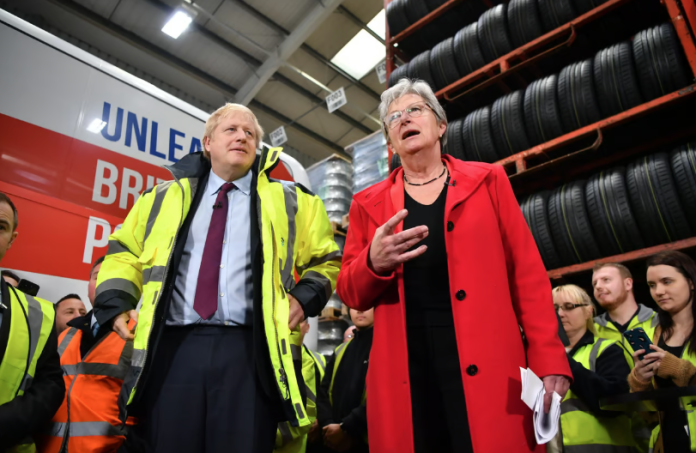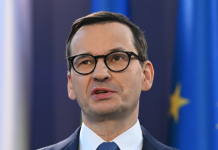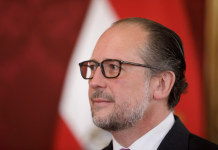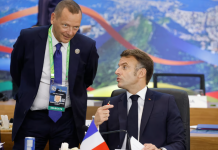Gisela Stuart’s role in recruiting the new negotiator has some British pro-Europeans spooked.
LONDON — Candidates vying to become Britain’s next Brexit chief will have to pass an interview conducted by the chair of the 2016 EU referendum’s Vote Leave campaign. Not everybody is thrilled.
Britain’s Prime Minister Keir Starmer is recruiting a new top official to be the face of talks with Brussels and to renegotiate the Brexit settlement agreed by the preceding Conservatives in areas like regulation and security.
The interview panel for the role will be headed by Gisela Stuart, a prominent Euroskeptic who worked with top Brexiteers Boris Johnson, Dominic Cummings and Michael Gove to take Britain out of the EU in the first place.
Johnson put his ex-Vote Leave colleague in charge of vetting civil service appointments back in 2022 shortly before his premiership imploded. Starmer has not replaced her.
As first civil service commissioner, Stuart’s job is to provide “assurance that civil servants are selected on merit on the basis of fair and open competition, and to help safeguard an impartial civil service.”
But her role in recruiting the new negotiator has worried some pro-Europeans in the U.K.
“We don’t need key appointments influenced by ideology — we have had our fair share of that,” said Richard Kilpatrick, head of policy at the European Movement UK campaign group.
“The job of negotiating our future relationship with Europe is too important to get wrong. It shouldn’t be determined by whether someone voted to leave or remain in the EU.”
Impartiality concerns
Starmer — who will make the final appointment — himself sounded the alarm over Stuart’s new job while leader of the opposition, questioning her impartiality on EU affairs.
“She is closely politically connected to the current [Conservative] government and has campaigned with many of them on important political matters that are still relevant to the challenges faced by departments,” Starmer wrote to the Cabinet Office at the time.
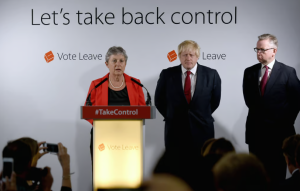
“This means that there are questions over whether she is in a position to provide advice and oversight that is independent, impartial and objective. Her appointment as the first civil service commissioner raises similar questions.”
Some MPs on the House of Commons Public Administration and Constitutional Affairs Committee — which scrutinizes the workings of government — also expressed “reservations” about the ex-Labour MP’s suitability for the job at the time, including over her “perceived impartiality.” The committee, however, endorsed her appointment.
Leading the EU secretariat
Stuart has an oversight role on the appointment due to Starmer’s decision to appoint his incoming Brexit chief as a civil servant — rather than as a political special adviser, as Johnson did with his negotiator David Frost. Frost was also later inducted to the House of Lords and was made a government minister.
The person selected for the role will receive the official title of second permanent secretary at the Cabinet Office, a U.K. government department that supports the prime minister.
They will lead the newly formed EU secretariat, which is largely ready to go.
The U.K.’s Euroskeptic Mail on Sunday newspaper has already branded the unit the Brexit “surrender squad” for its work aligning certain U.K. and EU rules.
A Cabinet Office spokesperson said: “As we reset our relationship with the EU, building closer trade and security links and encouraging more investment from around the world, this new role will oversee that work. Reporting to the Minister for European Union Relations, they will lead official-level discussions with the EU as we drive economic growth.”
On Christmas Eve, Cabinet Office Minister Georgia Gould confirmed in a written parliamentary answer that “all senior civil servant roles within the EU Relations Secretariat are currently filled” — other than its boss. Recruitment for the job closed Dec. 8, with candidates currently going through the process.

